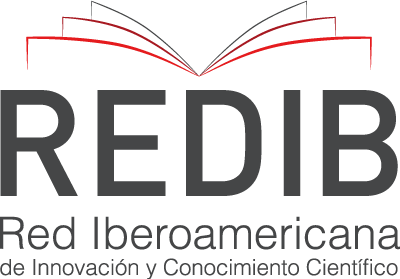Digital literacy or learning digital language
Conceptual review and methodological proposal from an experience of university social responsibility in Bogota
DOI:
https://doi.org/10.56162/transdigital59Keywords:
Language, ICT, Digital literacyAbstract
Today the use of the internet and digital devices is increasingly massive. The social crisis caused by the COVID-19 pandemic has led to many activities that take place in physical spaces in person, being transferred to virtual environments to be carried out remotely, in such a way that there are more and more people who have to make information and communication technologies everyday tools, but their incorporation into daily activities is done instrumentally without deepening an understanding and appropriation of the devices and language on which their logic of communication is structured. functioning. This article raises two reflections on language and proposes a methodology for digital literacy based on the learning obtained in an adult training experience within the framework of a university social responsibility process. The accent is placed on the need to generate processes that allow new and old information and communication technologies users not only to use digital tools as instruments but also as devices that have a language that builds reality and transforms thought construction processes.
References
Aladro Vico, E. (2017). El lenguaje digital, una gramática generativa. CIC. Cuadernos de Información y Comunicación, 22, 79-94. [Fecha de Consulta 12 de Julio de 2021]. https://www.redalyc.org/articulo.oa?id=93552794008
Bebea, I. (2015). Alfabetización digital crítica. Una invitación a reflexionar y actuar. BioCoRe S. Coop.
Centro Nacional de Consultoría. (2021). El salto digital. Evidencias de una nueva era. Apropiación Digital: https://dc474ff0-5914-4f85-b4fd-19245cc79ca0.filesusr.com/ugd/c967c2_dee43d7c1ff7491dbb4b6057b5812e49.pdf?index=true
Departamento Nacional de Planeación. (2019). Plan Nacional de Desarrollo 2018-2022: Pacto por Colombia, pacto por la equidad. Bogotá, D. C.
George Reyes, C. E. (2020). Alfabetización y alfabetización digital. Transdigital, 1(1), 1-17. Obtenido de https://www.revista-transdigital.org/index.php/transdigital/article/view/15/5
George Reyes, C. E., & Avello-Martínez, R. (2021). Alfabetización digital en la educación. Revisión sistemática de la producción científica en Scopus. Revista de Educación a Distancia (RED), 21(66). https://doi.org/10.6018/red.444751
Harari, Y. N. (2018). El arbol del saber. En Y. N. Harari, De animales a dioses. Breve historia de la humanidad, pp. 33-54. Debate.
Internet World Stats. (27 de Noviembre de 2019). Latin American Internet Usage Statistics. [Fecha de Consulta 6 de Abril de 2021] https://www.internetworldstats.com/stats10.htm
Lattanzi, J. P. (2013). ¿El poder de las nuevas tecnologías o las nuevas tecnologías y el poder? Cuaderno 45, 15-25.
Léxico. (2021). Hipertexto. Léxico: https://www.lexico.com/es/definicion/hipertexto
MINED. (s.f.). Cruzada Nacional de Alfabetización. Obtenido de Ministerio de Educación de Nicaragua: https://www.mined.gob.ni/cruzada-nacional-de-alfabetizacion/
Moreno Rodríguez, M. D. (2008). Alfabetización digital: el pleno dominio del lápiz y el ratón. Comunicar (30), 137-146.
Pérez-Cruz, F. d. (2011). La Campaña Nacional de Alfabetización en Cuba. Varona, 10-23. https://www.redalyc.org/pdf/3606/360635575003.pdf
Pérsico, M., & Contín, S. A. (2005). ¿Qué significa actualmente estar alfabetizado? Comunicar (24), 177-182.
RAE. (2021). Diccionario de la lengua española. Obtenido de Real Academia Española: www.rae.es
Reimers, F. (2021). Oportunidades educativas y la pandemia de la COVID-19 en América Latina. Revista Iberoamericana de Educación, 86(1), 9-23. doi:10.35362/rie8614557
Ríos Gonzáles, L. F. (2017). Teoría pictórica de tractatus a la luz de los juegos del lenguaje de las investigaciones filosóficas. Bogotá. https://ciencia.lasalle.edu.co/filosofia_letras/78
Tamayo, L. A. (2018). Ensayos sobre Wittgenstein. El giro linguístico en filosofía. Aula de Humanidades.
UNESCO. (10-12 de Junio de 2005). Aspects of Literacy Assessment: Topics and issues from the UNESCO Expert Meeting. https://unesdoc.unesco.org/ark:/48223/pf0000140125
UNESCO. (2020a). Interrupción educativa y respuesta al COVID-19. https://es.unesco.org/covid19/educationresponse/
UNESCO. (2020b). Consecuencias negativas del cierre de las escuelas. https://es.unesco.org/covid19/educationresponse/consecuencias
UNIMINUTO. (2018). Lineamientos generales. Estrategias de Proyección Social UNIMINUTO. Bogotá D.C.
Uribe de Hincapié, M. T., & Álvarez García, J. M. (2002). Cien años de prensa en Colombia, 1840-1940. Universidad de Antioquia.
Wittgenstein, L. (1976). Los cuadernos azul y marrón. Editorial Tecnos.

Downloads
Autor de correspondencia
El autor de correspodencia se identifica con el siguiente símbolo: *Published
How to Cite
License
Copyright (c) 2021 Óscar Eduardo Camelo Romero

This work is licensed under a Creative Commons Attribution 4.0 International License.
All articles in Transdigital are licensed under a Creative Commons Attribution 4.0 International License. Authors hold the copyright and retain publishing rights without restrictions.




























